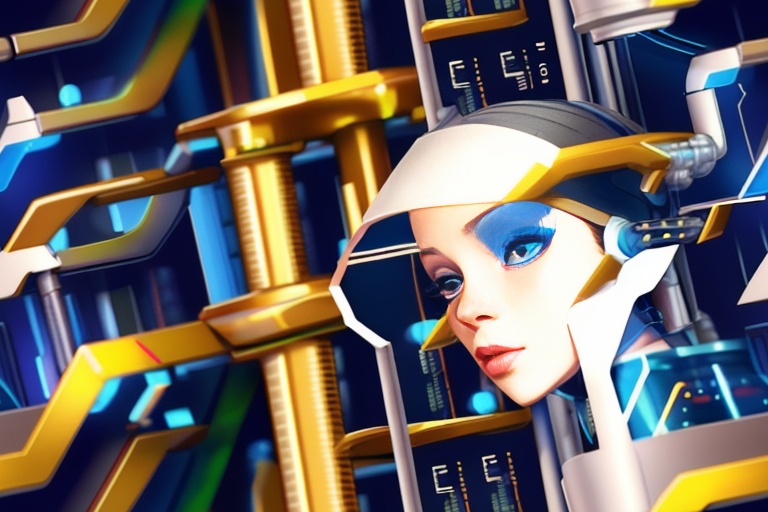Artificial intelligence (AI) is no longer confined to science fiction. It's a dynamic force that's beginning to shape our present and will almost certainly transform our future. At the heart of AI lies the capability of machines to emulate human-like cognitive functions—including reasoning, learning, planning, and even creativity. This remarkable technology empowers computational systems to perceive their surroundings, assimilate information, find solutions to problems, and initiate actions to fulfill outlined objectives. Simply put, by evaluating data and learning from its experiences, an AI system can continuously refine its performance.
Artificial intelligence (AI) is no longer confined to science fiction. It's a dynamic force that's beginning to shape our present and will almost certainly transform our future. At the heart of AI lies the capability of machines to emulate human-like cognitive functions—including reasoning, learning, planning, and even creativity. This remarkable technology empowers computational systems to perceive their surroundings, assimilate information, find solutions to problems, and initiate actions to fulfill outlined objectives. Simply put, by evaluating data and learning from its experiences, an AI system can continuously refine its performance.
The power of AI encompasses its ability to engender a revolution across diverse industries and fuel society's digital metamorphosis. Fueled by recent gains in computational might, the accessibility of extensive data sets, and breakthroughs in algorithmic design, AI is at the forefront of technological progress. Consequently, AI has emerged as a pivotal concern within the European Union, determined to harness its potential.
The Intrinsic Role of AI in Daily Life
Seamlessly integrated into the fabric of our lives, AI's presence is often unnoticed. It serves numerous purposes:
Enhancing Shopping Experiences and Targeted Advertising
Through the power of AI algorithms, online retailers can personalize shopping recommendations by assessing a user's previous searches and purchases. This technology also sharpens inventory management, streamlines logistics, and refines advertising strategies.
Revolutionizing Web Searches
AI propels search engines to yield more pertinent results by learning from and adapting to user behaviors and patterns.
Streamlining with Digital Assistants
AI-driven digital assistants like Siri and Alexa simplify our lives by managing tasks, delivering answers, making suggestions, and improving the efficiency of our daily routines.
Bridging Language Barriers
Machine translation software, which leans on AI, offers better text and speech translations, making global communication more accessible.
Smartening our Homes and Urban Landscapes
Intelligent thermostats learn our preferences to optimize energy use. Smart city initiatives apply AI to boost connectivity, manage traffic flows, and augment public infrastructure.
Innovating Automotive Safety
While fully autonomous vehicles are still on the horizon, today's cars are equipped with AI-enhanced features for safer navigation and collision prevention.
Reinforcing Cybersecurity
AI is instrumental in preempting and countering cyber threats, sifting through vast quantities of data to spot patterns and prevent potential attacks.
Combating Misinformation
AI tools are becoming increasingly adept at flagging fake news by scrutinizing social media posts, assessing for sensationalist content, and verifying the credibility of information sources.
AI during a Global Health Crisis
The COVID-19 pandemic has underscored the versatility of AI, particularly in its role in responding to global health emergencies. AI demonstrates utility in:
- Assisting in temperature checks with thermal imaging at checkpoints like airports.
- Aiding medical diagnostics through lung scan analysis to detect viral infections.
- Monitoring and analyzing the progression of the pandemic by evaluating expansive datasets.
This application of AI in tracking and mitigating the impact of a pandemic exemplifies its integral role in public health endeavors.
AI: Between Innovation and Ethical Governance
As AI continues its ascent, its responsible development and deployment grow ever more crucial. European legislators are crafting measures, exemplified by the proposed AI Act, that thread the needle between fostering innovation and maintaining robust ethical and legal standards. What's paramount is crafting a regulatory environment that protects individual rights while permitting technological growth and exploration.
AI's burgeoning influence extends through multiple sectors. Its capacity to reflect facets of human intellect has already brought about revolutions in numerous fields. With AI's integration into our daily lives continuing apace, it's vital that we remain well-informed about its practicalities, advantages, and moral implications. As we collectively chart the course of AI's future trajectory, it is imperative that both its technological prowess and ethical considerations are balanced with care.
Understanding the symbiotic relationship between technological advancements and legislative oversight will be crucial for those at the forefront of AI development and policy-making. With meticulous management and conscientious deployment, AI harbors the profound promise of reshaping industries and forging a future rich with opportunity for everyone.
The trajectory of AI is a journey we're all a part of—whether we're creators, consumers, or regulators. Its impact will be as profound as our commitment to guiding its evolution with wisdom, foresight, and an unwavering dedication to the public good.
Information for this article was gathered from the following source.




